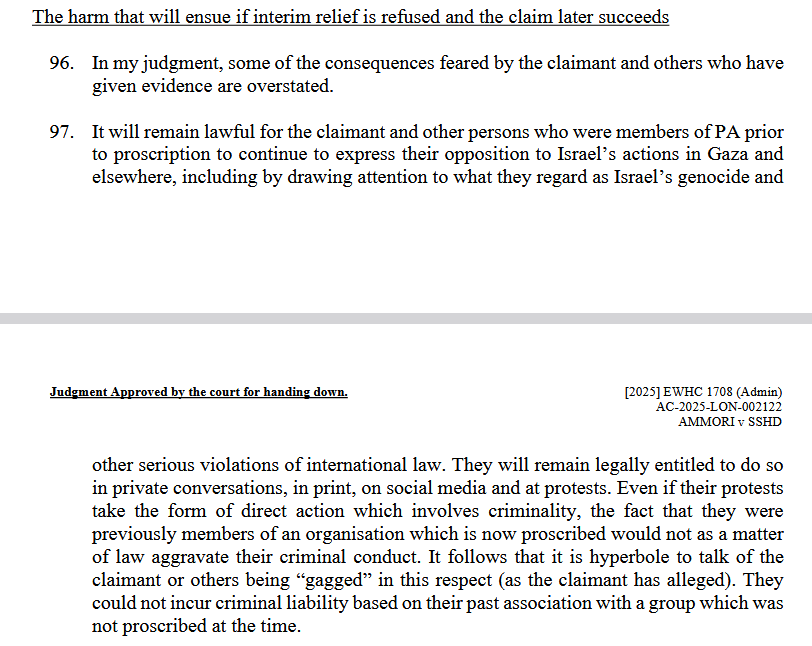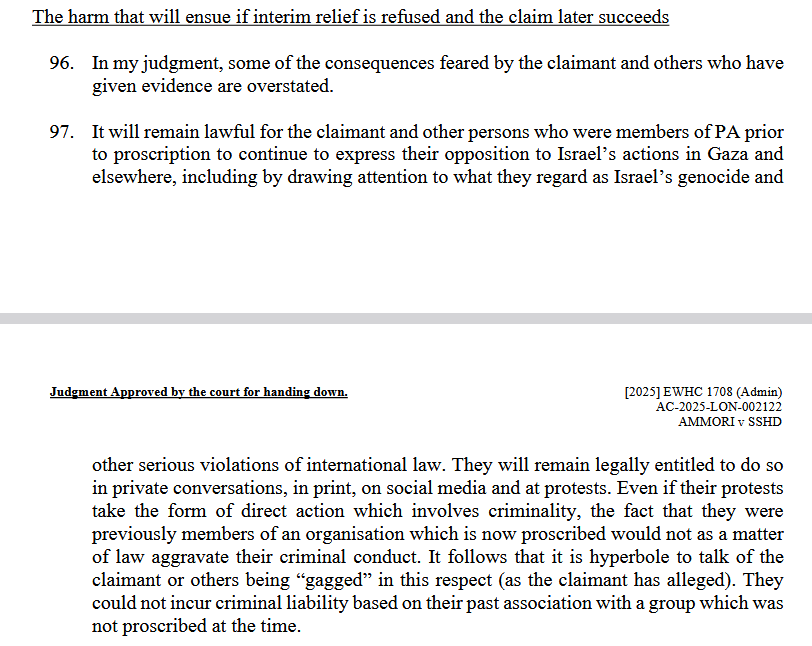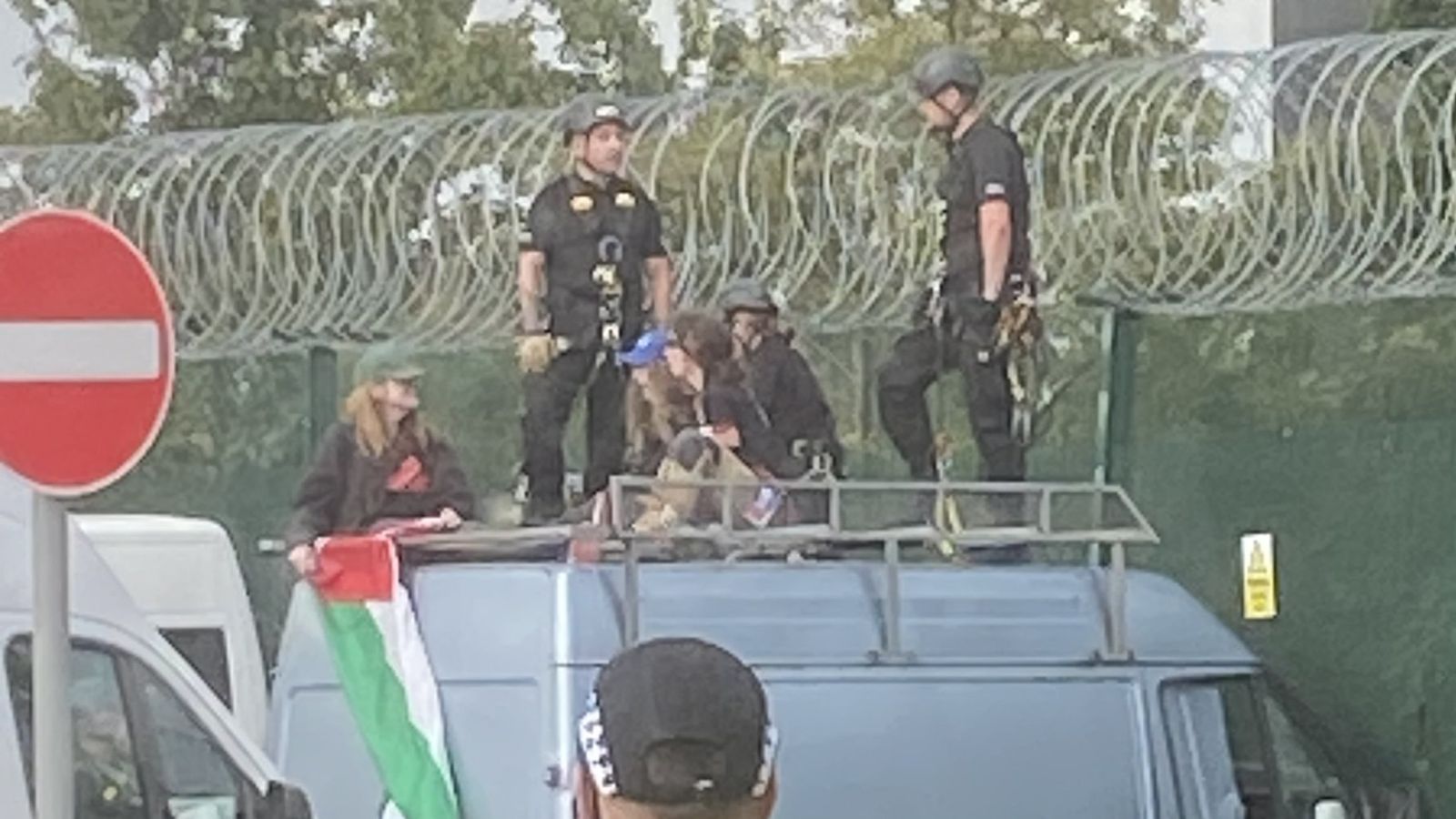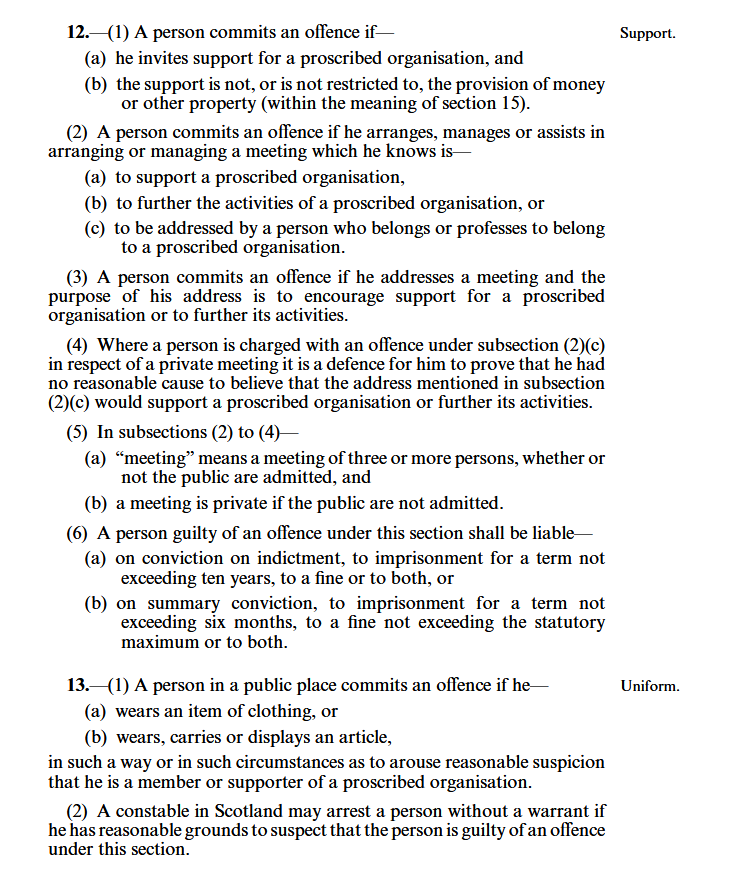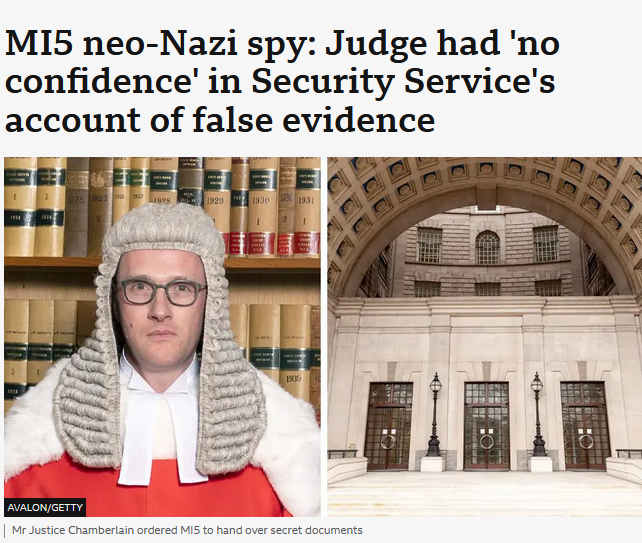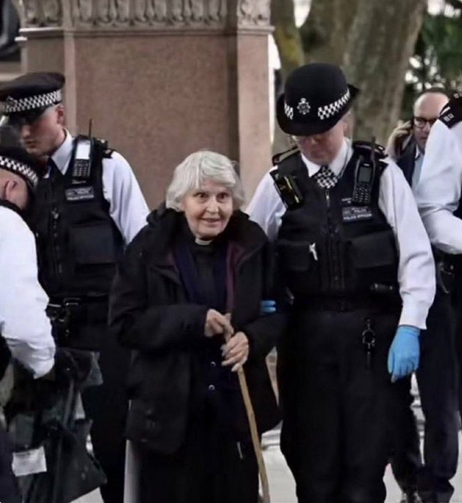Malicious Mischief 136
The Starmer regime’s attitude to the law, both domestic and international, has been diseased by the doctrine of unquestioning support of Israel.
This morning the Handala became the second vessel flying the Red Ensign to be illegally seized by Israel, without a single word from the UK, which has a duty to protect its vessel in international waters. Indeed British law applies upon the vessel and the Metropolitan Police should be investigating domestic law kidnap of the passengers.

That is in addition to the international crime of seizing the vessel.
Uniquely the UK has declared itself unable to judge whether war crimes have been committed by Israel, absent a decision by an international court. That position has never been taken before, is notably not taken over Ukraine, and is at odds with Starmer’s self-declared ability to judge that there is no Genocide in Gaza.
It also ignores the fact that the International Criminal Court cannot judge, while Netanyahu ignores their arrest warrants. The International Court of Justice case on Genocide is in very slow process, but Starmer has no difficulty in pre-empting the court by denying Genocide.
Volker Turk, the United Nations High Commissioner for Human Rights, has very roundly condemned the UK’s proscription of Palestine Action as a terrorist organisation, and called on the UK government to lift the proscription.
He also has called the UK to amend its Terrorism laws to bring its over-broad definition of terrorism in line with international law standards. Turk stated:
I urge the UK Government to rescind its decision to proscribe Palestine Action and to halt investigations and further proceedings against protesters who have been arrested on the basis of this proscription. I also call on the UK Government to review and revise its counter-terrorism legislation, including its definition of terrorist acts, to bring it fully in line with international human rights norms and standards
This is a remarkable development because nobody could ever accuse Volker Turk of being anti-Western. In fact his passivity, as freedoms are extinguished across the western world in order to stifle protest against the Genocide, has been a source of frustration to the human rights community.
It is a sign of just how absurd is the proscription of Palestine Action, that even Volker Turk has now decisively spoken out against it.
Let me give you a plain example of just how absurd the law now is.
The three young women from the Shut Down Leonardo group, who drove a van into the security fence of the Edinburgh weapons factory which makes parts for the Israeli military machine, were brought to court on Monday.
They were charged with Malicious Mischief – a Scottish common law offence of serious vandalism – aggravated by terrorism.
This reduces terrorism from the gravest of crimes, to merely an aggravating factor. The driver of the van has even been charged with dangerous driving aggravated by terrorism, which when you think about it is a hilarious concept.
To further underline that nobody really believes this is terrorism, all three have been released on bail. Can you imagine accused who had carried out a genuine terrorist attack being released on bail?
I don’t want to downplay too far the dangers. Malicious mischief is a dangerous charge – being common law, there is no limit to the possible jail sentence it might carry, and furthermore lengthy jail sentences for it can be imposed by a judge without a jury.
I am unsure that this offence should meet the bar of malicious mischief anyway. The Crown Office charging guidelines state that damage must be in the thousands of pounds and damage must affect others. They read:
Malicious Mischief should only be recorded where widespread damage is caused, where the value of the damage is considerable, or where there is disruption of power supply, flooding or similar. There is no specific monetary amount where Vandalism stops and Malicious Mischief takes over but any value of damage would require to be significant (several £000s) before a crime of Malicious Mischief is recorded.
The example given is deliberately damaging power lines and cutting the power to people’s homes. I am not sure a slight dent in a fence meets the bar.
But I also want to look at the women’s treatment as an example of the pernicious treatment of protestors since the proscription of Palestine Action.
The three are not accused of membership or support of Palestine Action. Yet they were arrested under the Terrorism Act and treated as terrorists. They were taken to the specialist terrorist detention and immigration centre in Govan and held there without charge for six days.
Today, @CraigMurrayOrg informed a protest outside Govan police station that three women had been assured this morning that they would be charged only with non-terrorism offences. Yet, by 3pm, terrorism charges had been made. What, he asks, is going on?https://t.co/ClyoJdtUE9 pic.twitter.com/1DpGtCdskH
— GGEC (@ggectee) July 20, 2025
That means that some authoritarian judge must have twice secretly signed off on the continuation of their detention. Why?
They were held strictly incommunicado. I helped organise the best legal support for them, and for six days their parents, supporters and I tried to get a message to them to ask for this legal team, but we were not permitted to reach them.
The women’s parents phoned and asked the police to pass on to them a message about the lawyers organised for them. The police refused. The brother of one of the women went to Govan police station, and was also refused permission.
The lawyers we had organised phoned the police, and said they had been instructed by the families, but again the police refused to pass on any message.
The women had to make do with the bog-standard duty solicitor service. Now the police do not normally have the power to hold people without charge for six days and to keep people completely incommunicado during that time.
The Terrorism Act gives the police those powers. But it does not mean they are obliged to use them. It is extraordinary that they refused all requests to tell the women about legal support, and was plainly gratuitous victimisation, designed to prevent the women from mounting the best possible legal defence.
Yet it appears that – from a conversation with one of them – within detention the women were kindly treated, and they had the impression the police also did not think they should be there. Questioning was neither harsh nor particularly probing, and apparently by identifiable Scottish police officers.
That is consistent with the decision to grant bail – they are caught up in a system of terrorist legislation, but none of those operating the system really believes in the narrative.
On 19 July I was present at St Giles Cathedral as eleven people from Defend Our Juries held placards identical to those which have led to mass arrests across the UK, stating “I Oppose Genocide – I Support Palestine Action.” They were there for half an hour in plain view of police, but nobody was arrested.
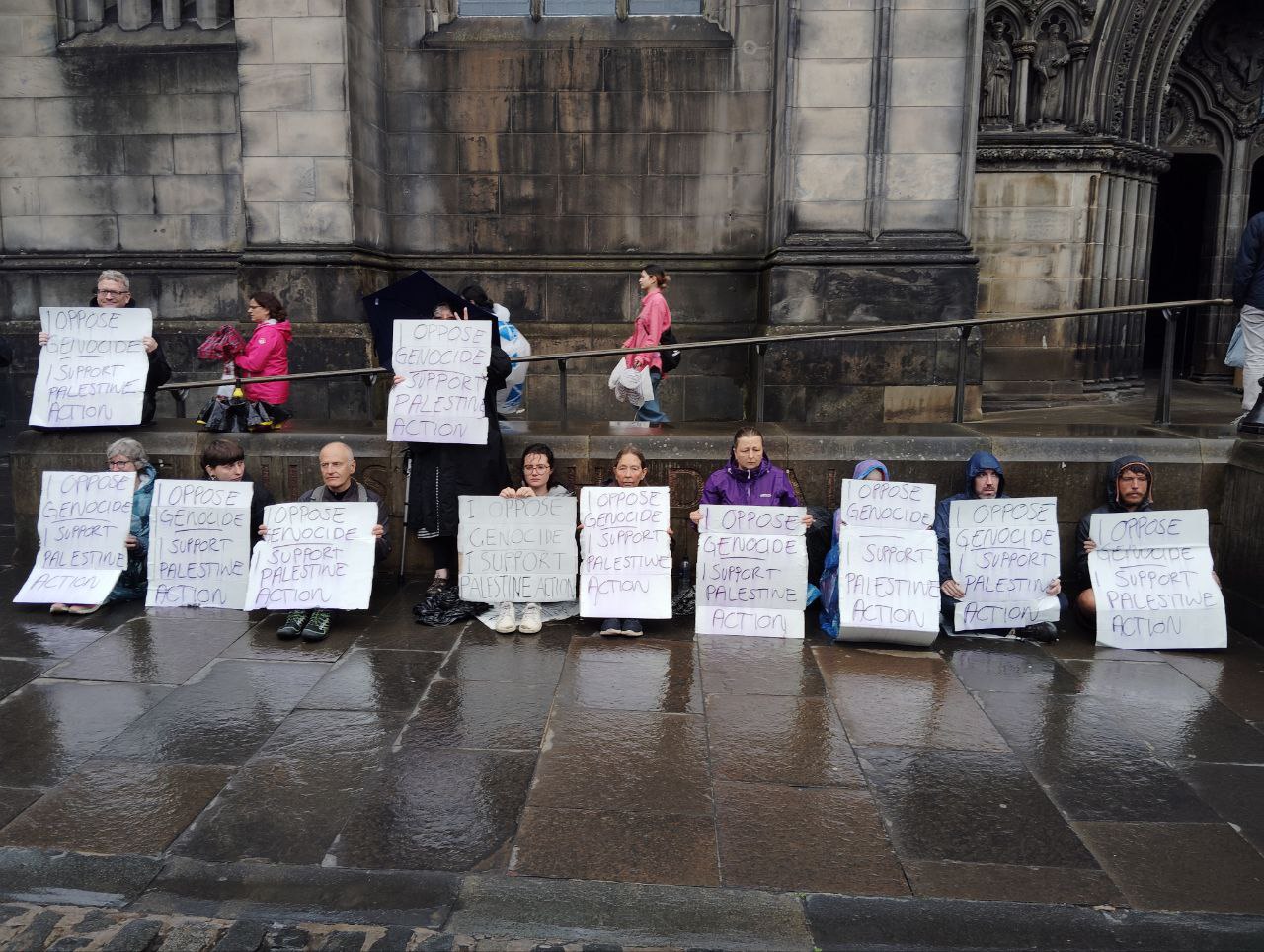
After the demonstration, a group of demonstrators in front of the Scottish First Minister’s office held various signs and wore various T shirts identical to those which have caused arrest elsewhere, but again nobody was arrested.
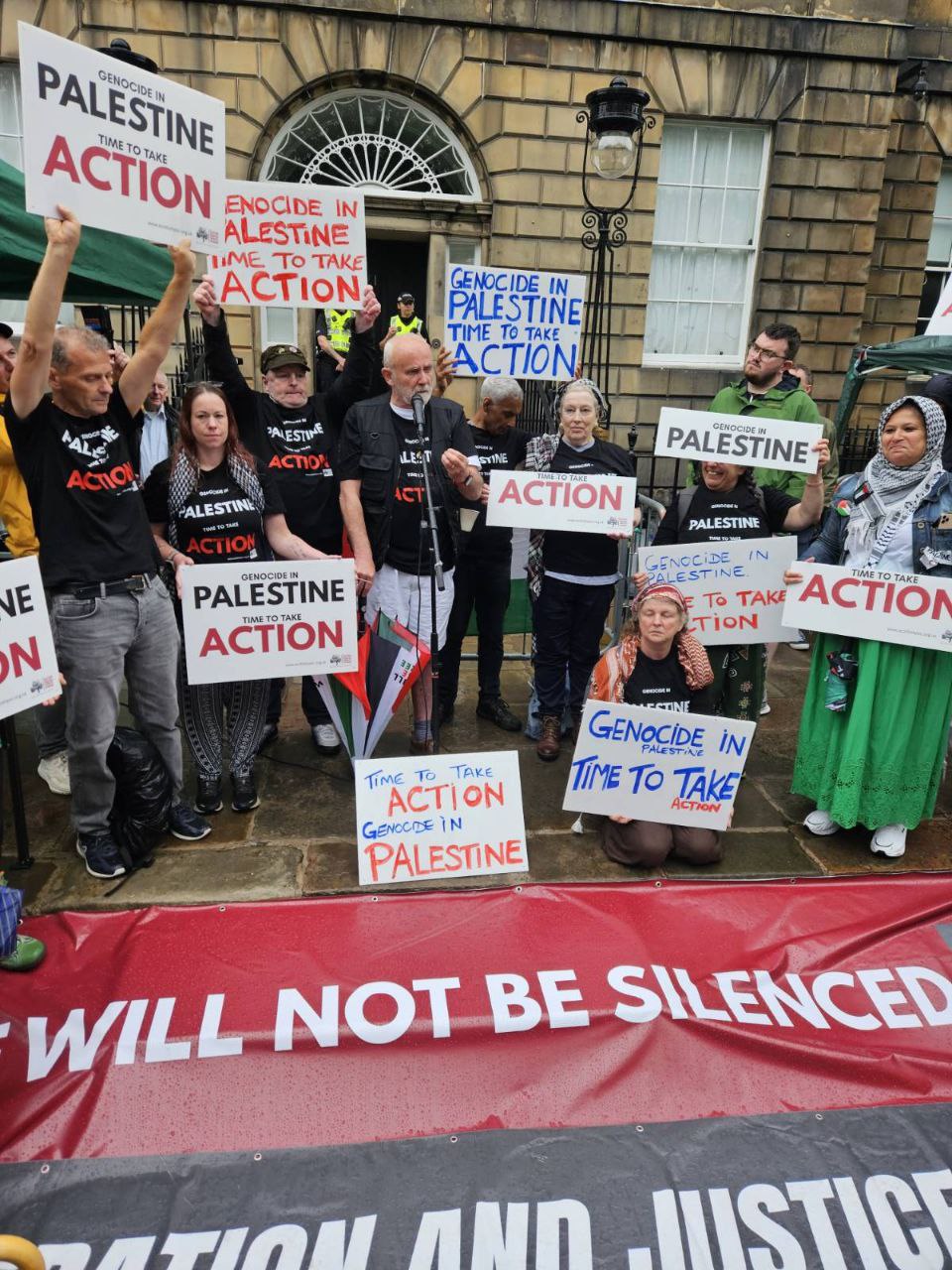
In the week since, three people have been arrested and charged with terrorism offences, in relation to the above. One, Mick Napier (in the centre with the microphone in the second photo) was arrested as he left the protest on Monday 21 July outside Edinburgh Sheriff Court, for the bail hearing of the Leonardo 3.
Mick actually came up to me and said he thought he was about to be lifted, as policemen were following him around. Five minutes later he was. Since then, plain clothes policemen have been to his home three times in a campaign of intimidation.
While the Leonardo 3 are out on bail, they too are suffering from various methods of state intimidation, including the freezing of bank accounts and loss of access to money.
One distinct possibility is that the state is suspending the full implementation of legal action over the proscription, until the hearing for a judicial review of proscription is concluded, as the key argument in the judicial review is the disproportionate consequences for free speech of the ban.
Judge Chamberlain had said in his refusal to stay the proscription that the fears for suppression of free speech were being exaggerated.
I reported on these attempts to suspend the proscription of Palestine Action pending the application for a judicial review. I could now not be simultaneously at the Edinburgh Sheriff court for the Leonardo 3 case and at the High Court in London for the proscription case, but fortunately Mohamed Elmaazi was on hand to cover the High Court.
Here is Mohamed’s report, slightly modified for context:
BEGINS
“I think what you’re doing is, you’re saying, you predicted this,” Mr Justice Chamberlain told Blinne Ní Ghrálaigh KC – representing Palestine Action co-founder Huda Ammori the morning of 21 July at the High Court of Justice – “and what you’re doing now is sharing evidence that they have happened.”
The judge’s remarks were in response to Ghrálaigh describing example after disturbing example of pro-Palestine and anti-genocide protesters being threatened with arrest — or actually arrested – across the country, ever since Palestine Action was banned as a terrorist organisation.
Ammori’s lawyers, Raza Husain KC and Ghrálaigh, made the oral arguments advancing the Claimant’s request to appeal the ban.
Before one can appeal a governmental decision – such as the Home Secretary’s order banning Palestine Action – they require permission to appeal.
Only two and a half weeks prior, on 4 July, Ammori’s lawyers unsuccessfully attempted to persuade the same judge to temporarily delay the ban from coming into effect until they had a chance to fully make their appeal – should he grant them one.
They argued that, given the both predictable and boundless implications for freedom of speech and association, the court should stay the Home Secretary’s ban to avoid irreparable harm from occurring.
They warned of dire consequences; not only for Palestine Action and its members but wider members of the public as well.
Husain and Ghrálaigh had explained at the 4 July hearing that labelling Palestine Action a terrorist organisation would result in a “grossly disproportionate interference with the rights to freedom of expression and assembly” not only of its members but also for potentially hundreds of thousands, if not millions, of people across the UK.
But Chamberlain largely dismissed the more serious of the concerns as “hyperbole”.
“In my judgment, some of the consequences feared by the claimant and others who have given evidence are overstated,” Justice Chamberlain wrote in his 4 July judgment rejecting Ammori’s request to temporarily prevent the ban from taking effect.
“It will remain lawful for the claimant and other persons who were members of [Palestine Action] prior to proscription to continue to express their opposition to Israel’s actions in Gaza and elsewhere, including by drawing attention to what they regard as Israel’s genocide and other serious violations of international law,” the High Court judge wrote.
“They will remain legally entitled to do so in private conversations, in print, on social media and at protests” he insisted before adding that therefore it “follows that it is hyperbole to talk of the claimant or others being “gagged” in this respect (as the claimant has alleged). They could not incur criminal liability based on their past association with a group which was not proscribed at the time.”
Two weeks later, Chamberlain’s tone was somewhat modified. He appeared to accept that he may have been wrong. In fact, he actually reminded the parties of what he wrote by reading out part of his decision refusing permission.
Ghrálaigh told the court that the situation is “even worse” than even they had predicted.
One of the key arguments made by the Claimant is that it could not have been Parliament’s intention to grant the Home Secretary the power to ban a direct action protest network such as Palestine Action. This is partially why they emphasised, as strongly as they did, the actions of the police across the country since the ban took effect.
Members of the public “with flags, badges, t-shirts, and posters that support Palestine, oppose genocide and/or satirise the Government’s position on the humanitarian catastrophe in Gaza” have been subjected to “heavy” policing and “other enforcement”, the Irish-born barrister explained.
“None of those had any relationship with Palestine Action” she emphasised. The examples Ghrálaigh outlined included:
1. Police stopping and asking protesters outside BAE systems factory to remove shirts reading “Free Palestine” because they may “breach the proscription order,” on 5 July.
2. An individual stopped whilst travelling through Dover by counter-terrorism police at the border for wearing a hat with “Palestine Solidarity badges” to ensure that they “weren’t a part of Palestine Action,” on 7 July.
3. A 55-year-old man arrested in Glasgow for wearing a t-shirt with the words “Genocide in Palestine, Time to Take Action” printed on it, on 12 July.
4. A 68-year-old man, also arrested in Glasgow, for holding a sign with the same text, reportedly charged and bailed under section 13 of the Terrorism Act 2000, on 18 July.
One of the examples that Ghrálaigh spent some time on was the case of Laura Murton – engaged in a solo protest on 14 July in Canterbury – who was stopped and threatened with arrest by two armed police. Murton was holding a Palestinian flag and had cardboard signs that said “Free Gaza” and “Israel is committing genocide”.
The incident was recorded and a transcript was provided to the court. But Ghrálaigh thought it worthwhile to read out part of the exchange.
Officer: “What’s your intention here today?”
Murton: “My intention is to wave this flag and keep Palestine in the public consciousness right now.”
Officer: “So, do you support any prescribed group?”
Murton: “I do not I do not support any prescribed group. I support a free Palestine and the end of genocide.”
Officer: “Can I get your details?”
Murton: “Am I required to give them to you?”
Officer: “Well, you may be committing offence at the moment. So, I just need to make sure that you’re legit.”
Murton: “What offence?”
Officer: “Well, as you’re aware, it’s now become an offence to obviously support a proscribed group like Palestine Action”
Murton: “Yeah, but I don’t I am not I don’t have anything on which says that.”
Officer 2: “I appreciate that. But the way you behaving at the moment would lead me to believe that you maybe. Giving me suspicion or grounds to believe you could be.
Murton: “What suspicion? That I’ve got a sign that says free Gaza. Holding a Palestinian flag and I have a sign that says Israel is committing genocide?”
“She has never been part of Palestine Action,” Ghrálaigh told the court.
Chamberlain noted that the police were overstepping because they simply don’t understand the law.
“My Lord may say that the officer doesn’t understand the law” Ghrálaigh said. “Canterbury Constabulary has not issued an apology. The Secretary of State [for the Home Department] hasn’t said that this is a misapplication of the law.”
Chamberlain responded saying that “there will be cases where the police get things wrong”.
“There is no indication that they are getting this wrong because no one has said they are getting this wrong,” Ghrálaigh insisted, noting that the armed officers later told Murton “we could have jumped out, erased you, dragged you off in a van”.
The ban creates a “Conundrum of doubt” as to application of terrorism laws.
“I think what you say is that if you proscribe a group like this, then it creates a sort of conundrum of doubt, and that affects all law enforcement agencies who themselves have got to take decisions, some of which may be right some of which may be wrong, but it casts a shadow over a number of things which may be…fall under the scope of the offence?” Chamberlain asked Husain. “You would say that that effect is one of the things that would need to be taken into account when deciding whether the proscription is proportionate?” he added.
“Indeed” Husain responded.
Although the Claimant’s grounds of appeal are too extensive to outline in a single article, it is worth briefly visiting some of them. This is especially the case as they help explain the relevance of how anti-genocide protesters are being targeted and arrested since the ban came into effect.
The Claimant’s request for judicial review of the Home Secretary’s decision to ban Palestine Action was based on eight grounds.
They include that:
1) The decision was made for an “improper purpose, insofar as she exercised the discretion conferred by Parliament for the purpose of banning a civil society dissent group”.
2) Banning Palestine Action represents “an unlawful interference” with the Article 9 (freedom of thought, conscience and religion), 10 (freedom of expression), 11 (freedom of assembly and association) and 14 (prohibition of discrimination) rights in the European Convention of Human Rights “of the Claimant, of Supporters of Palestine Action, and of members of the general public who advocate for Palestinian rights”.
3) The Home Secretary “erred in law in concluding that: (i) Palestine Action committed acts designed to influence the UK Government; and further or alternatively (ii) Palestine Action was concerned in terrorism, in circumstances where those acts that may (quod non) satisfy the section 1(1) TA 2000 definition are isolated and peripheral to the organisation’s methods and aims”.
4) The Home Secretary acted “irrationally in taking into account considerations irrelevant to the decision before her (whether to proscribe Palestine Action); and in failing to take into account matters that were plainly relevant to that decision”.
Irrelevant considerations include her assessment as to whether Palestine Action’s protest is “legitimate” in her subjective view and whether their protests “caused loss of revenue”. “Lost revenue is irrelevant” to assessing whether a group should be banned, they argue.
Relevant considerations the Home Secretary failed to take into account include the fact that Palestine Action “seeks to prevent conduct which it and large sections of the public reasonably consider to be genocide and breaches of international law”.
The Home Secretary also failed to consider the impact the ban would have on free speech “in favour of direct action against arms companies supplying Israel” and on “low-level direct action and civil disobedience against arms companies by persons not associated with (or no longer associated with) Palestine Action.”.
She also failed to consider the availability of other civil and criminal options apart from a banning order.
5) The Home Secretary breached her own policy “which requires that a decision to proscribe be ‘proportionate’”. No adequate proportionality assessment was undertaken.
6) The Home Secretary “violated the principle of natural justice by failing to give Palestine Action the opportunity to respond to adverse findings prior to her making the decision” to ban them.
One key document government document referred to repeatedly by the Claimant is the “open” version of the Joint Terrorism Analysis Centre (JTAC) assessment. The JTAC document, which was obtained by the authors of this article, was repeatedly referenced by Ammori’s lawyers.
Ghrálaigh noted that the JTAC assessment, as part of its determination that Palestine Action has been involved in terrorism, focused on the August 6 2024 action targeting a key drone and surveillance facility for Israel’s largest weapons firm Elbit Systems, in Filton, Bristol.
The JTAC assessment notes that none of the activists, known as the Filton 18, have been charged with terrorism offences for the August action. Yet, in a truly Orwellian development, the Crown Prosecution Services have concluded that they should nonetheless be “considered by the court as having a terrorist connection.”
JTAC then considers that Palestine Action have “promoted terrorism” simply for “sharing footage” of the Elbit action in Filton, an action for which nobody has been charged with terrorism.
“JTAC has asserted that that was a terrorist incident and therefore that supporting it has become terroristic, it’s entirely circular,” Ghrálaigh exclaimed, in a clearly exasperated voice.
“They’re just looking at the statutory definition which includes ‘serious damage to property’” Chamberlain responded.
“Indeed” Ghrálaigh noted before raising an equally disturbing point.
Underneath the subhead “promotion of the 6 August attack” JTAC refers to Amnesty International and UN reports “about the Flinton 18 and their treatment and JTAC referring to references of those statements of concern, by Palestine Action, as evidence of them fitting the definition of terrorism”.
“We’re completely through the looking glass if sharing statements from Amnesty International and the United Nations can be construed as promoting terrorism” Ghrálaigh exclaimed.
“Well once again, JTAC is just looking at the statutory definition [of terrorism]” Chamberlain insisted.
“Well, my lord, the statutory definition cannot include sharing expressions of concern from Amnesty International and the United Nations… That cannot be any basis for determining whether an individual or organisation is concerned with terrorism!”
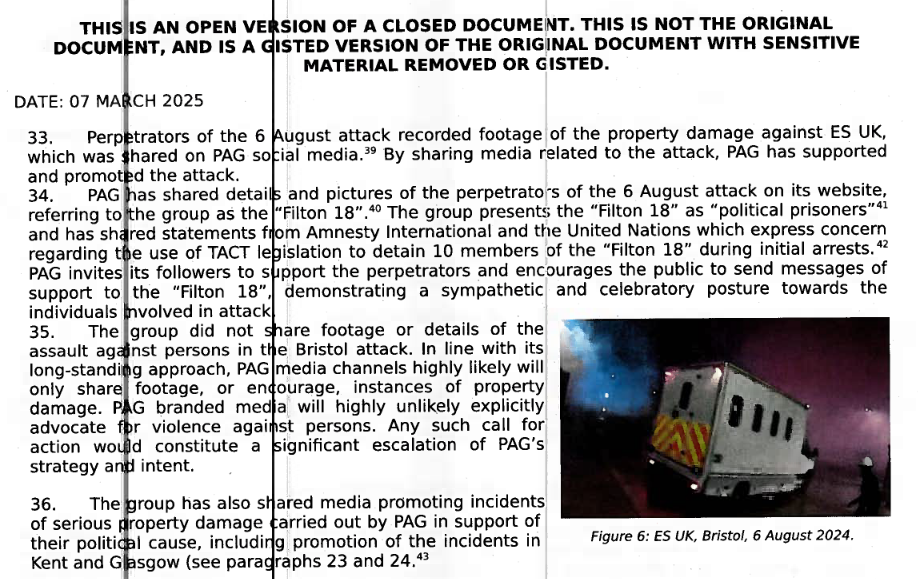
Significantly, even the JTAC assessment repeatedly states that Palestine Action “primarily uses direct action tactics, the majority of which would not constitute an act of terrorism” as defined under the Terrorism Act.
The JTAC document notes that it is “not the original document” but rather a “gisted version of the original” with “sensitive material removed or gisted”.
Blinne stated that any JTAC finding that Palestine Action has committed or promoted terrorism is not a legal finding and cannot supersede any decision by any jury or judge.
There are clearly many issues with how the authors of the JTAC report describe the overall context of Palestine Action’s behaviour, including by placing “Israeli genocide” in scare quotes.
The idea of criminalising an entire network as terrorist because, allegedly, at most three or four out of literally hundreds of actions could arguably be defined as terrorism – against property – is manifestly disproportionate, unjust and unlawful, the lawyers argued.
By JTAC’s own case, Ghrálaigh noted, there have been at most “four incidents out of 500” which even arguably satisfy some prohibited act under the UK Terrorism Act.
Even Chamberlain noted at one point that the JTAC “go out of their way to say” Palestine Action did not publicise or glorify violence against a person, in the one occasion in which it allegedly occurred.
A big part of the government’s argument against the High Court granting Ammori permission to appeal on Monday was that the courts were not the correct venue for the ban to be legally challenged. This is known as the “alternative remedy” argument.
The Proscribed Organisations Appeal Commission (POAC) is made up of a senior judge and two other people, including potentially someone from the security services.
“Judicial review is a remedy of last resort and permission will generally not be granted where a claimant has an adequate alternative remedy,” the Home Secretary’s legal submissions state. “In the present case, there plainly is an adequate alternative remedy available to the Claimant. Parliament has created a bespoke process, which includes a right of appeal to a specialist tribunal.”
The Home Secretary’s legal team argued that Ammori’s “attempt to challenge the proscription of Palestine Action by way of judicial review at this stage subverts this process.”
Sir James Eadie KC, lead counsel for the Home Secretary, argued that the correct procedure would be for Ammori or anyone else to go to POAC.
The problem is, unlike a judicial review which can be expedited, POAC could take months or even years to come to a decision. Unlike the High Court, POAC cannot “stay” the banning order and thereby prevent further harm from occurring.
Furthermore, judicial review could potentially impact hundreds if not thousands of current and future cases by providing legal certainty as to what the law is, Ammori’s lawyers noted.
POAC on the other hand can’t make a determination about any of the arrests occurring now and in fact it can only make a decision as to whether Palestine Action should be deproscribed.
Chamberlain challenged Sir James to explain what would happen to all the different people currently being arrested if the High Court refused to hear an appeal and make a determination as to whether the banning order reflected a disproportionate interference with fundamental human rights of the public.
Many defendants could be brought before Magistrates’ Courts, possibly to face a jury in a Crown Court.
“What about them? What if one of those people want to say ‘well, the proscription is disproportionate?’” Chamberlain asked Sir James “Either they can or they can’t.”
“The problem is that either of those answers is a problem for you. If they can take the point we are saying that POAC isn’t exclusive. If they can’t you then have an even bigger problem… because the proportionality of the proscription never gets considered by any [authority]”
POAC should be the exclusive place to challenge the banning order, Sir James insisted, even if that meant in the meantime people were unjustly arrested, charged or convicted.
“Whatever deleterious consequences flow from that flow because that’s the judgement of Parliament that they flow that way” James argued.
Chamberlain asked “If I am thinking in terms of discretion, surely it would be much better for the proportionality of the order to be considered in judicial review proceedings rather than for them to be considered in a Magistrates’ Court?” the judge asked.
“The difficulty with my Lords’ inclination” St James responded “is that it risks unravelling the statutory regime. If you put in a human rights challenge everything that we’re discussing flows, which is intensely problematic because it would tend to undermine the statutory regime.”
Ghrálaigh had began her oral submissions in the morning leaving the court with no doubt as to what was actually at stake.
“Israel has killed at least 28 children. A classroom of children killed every day for 653 days [since 7 October 2023]. Israel has done this while damaging or destroying every single hospital in Gaza. Israel is starving the population of Gaza…. People are literally, medically, wasting away. They are starving to death.”
“1,000 people have been killed, including by bombs, while attempting to access humanitarian food” she said. There is near consensus in the human rights field “that Israel is now committing genocide as well as other war crimes and crimes against humanity.”
“Israel is doing all of that with arms that are being provided” including parts for the F35 fighter jet “ by arms firms in Britain”.
“Direct action protest is not unlawful. It is certainly not terrorist. This proscription renders it so” Ghrálaigh asserted towards the end of the hearing, “even when it does not amount to criminal damage.”
Monday’s hearing lasted from 10:30am to around 17:00.
From around 15:30 to 16:30 the hearing became “closed” so that “closed” (i.e. secret) evidence and arguments could be presented by the state.
Ammori would not have been permitted to hear the closed arguments.
A special advocate was present on her behalf – not part of her regular legal team – and would have to do their best to challenge the closed arguments without consulting the applicant on whose behalf they are allegedly acting.
Members of the general public, including the press, had to leave the court and returned at 16:30 for the judge’s decision.
Chamberlain stated that, because of the complexity of the case and the fact that he heard “closed” evidence and arguments, Chamberlain’s decision as to whether he will grant permission for Ammori to appeal the ban will be made on Monday.
However, it must first be reviewed by the security services to ensure that he doesn’t improperly reference closed arguments.
The next hearing is scheduled for midday, Wednesday, 30 July. That is when we will discover whether Mr Justice Chamberlain will allow the appeal to be heard or not.
ENDS
Plainly this is yet a further example of how far into fascism the UK has gone. Chamberlain reviewed “intelligence material” for an hour provided by the security services, which almost with 100% certainty will include material provided by Mossad. This very likely will be fabricated and claim links between Palestine Action and Iran.
Huda Ammori, the Palestine Action co-founder who is seeking the legal review, will never be allowed to know the contents of this “intelligence” in order to challenge it.
Furthermore on Monday and Tuesday the security services will get to vet and amend Chamberlain’s judgment.
In the meantime, persecution is at a lower level until after Chamberlain’s ruling, but there continue to be outrageous acts by the police. I leave you with this one as an example of Starmer’s Zionist Britain: a wheelchair-bound man is lifted away by six policemen for wearing a T-shirt supportive of Palestine Action.
6 cops arrest & drag wheelchaired disabled man for Palestine Action t-shirt
Real felons roam free? pic.twitter.com/vzeaWCaIob
— Middle East Today🇵🇸 (@shekelazzam) July 27, 2025
I am now heading down to London for Chamberlain’s ruling.
———————————
My reporting and advocacy work has no source of finance at all other than your contributions to keep us going. We get nothing from any state nor any billionaire.
Anybody is welcome to republish and reuse, including in translation.
Because some people wish an alternative to PayPal, I have set up new methods of payment including a Patreon account and a Substack account if you wish to subscribe that way. The content will be the same as you get on this blog. Substack has the advantage of overcoming social media suppression by emailing you direct every time I post. You can if you wish subscribe free to Substack and use the email notifications as a trigger to come for this blog and read the articles for free. I am determined to maintain free access for those who cannot afford a subscription.
Click HERE TO DONATE if you do not see the Donate button above
Subscriptions to keep this blog going are gratefully received.
Choose subscription amount from dropdown box:
PayPal address for one-off donations: [email protected]
Alternatively by bank transfer or standing order:
Account name
MURRAY CJ
Account number 3 2 1 5 0 9 6 2
Sort code 6 0 – 4 0 – 0 5
IBAN GB98NWBK60400532150962
BIC NWBKGB2L
Bank address NatWest, PO Box 414, 38 Strand, London, WC2H 5JB
Bitcoin: bc1q3sdm60rshynxtvfnkhhqjn83vk3e3nyw78cjx9
Ethereum/ERC-20: 0x764a6054783e86C321Cb8208442477d24834861a

